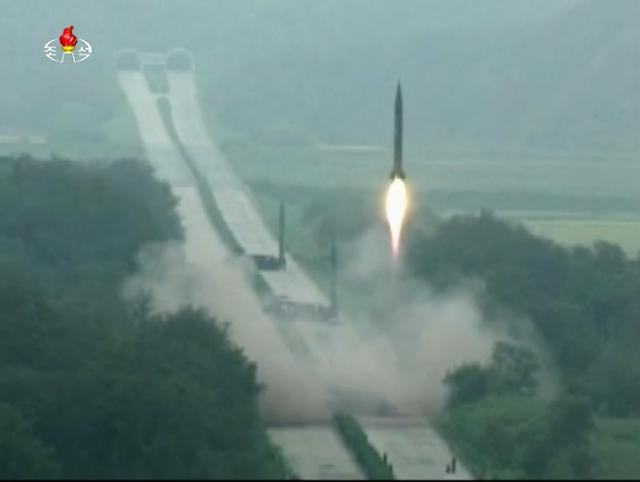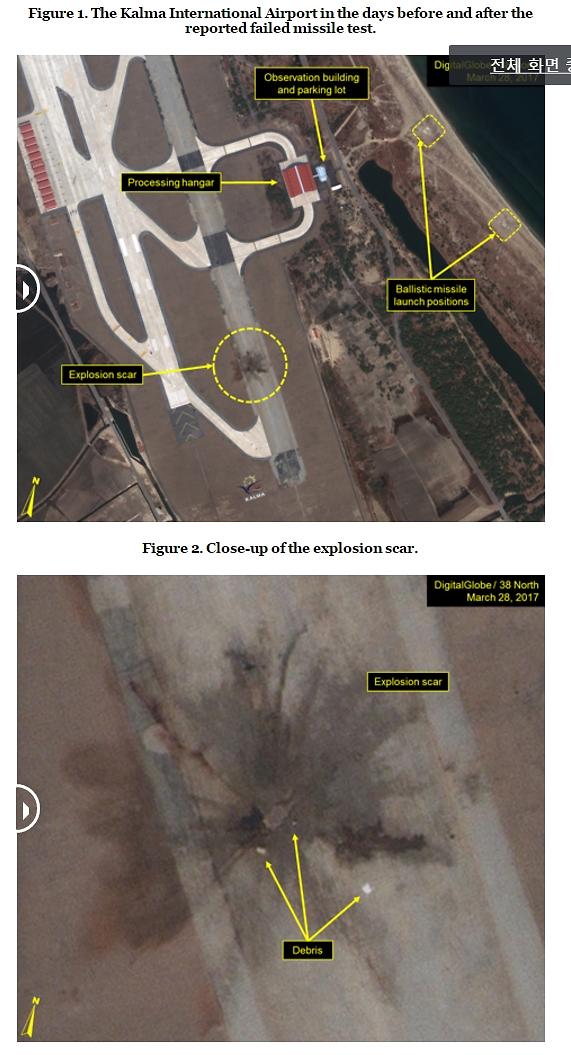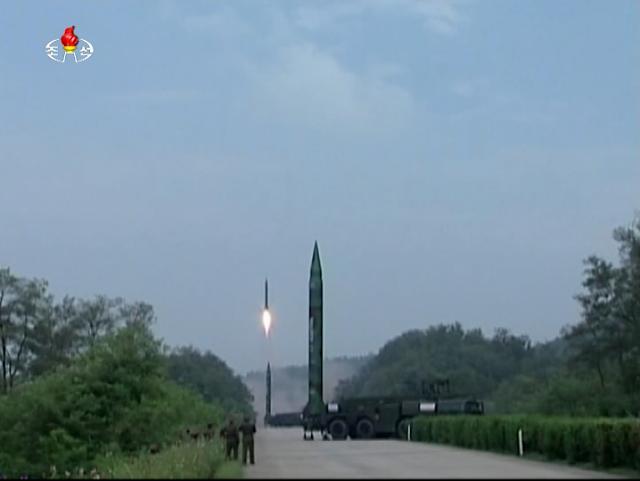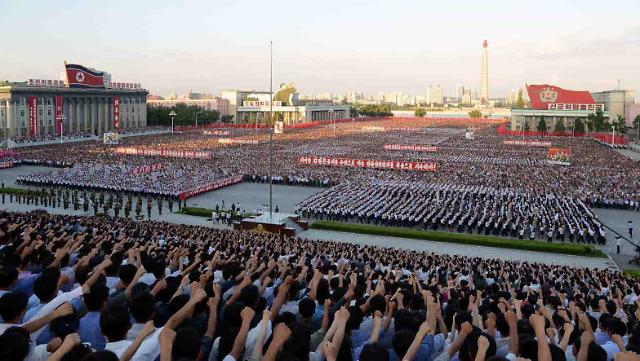
A file picture showing North Korea's missile launch.[Yonhap News Photo]
South Korea and the United States detected North Korea's failed launch of a suspected intermediate-range ballistic missile Thursday shortly after the allies agreed on a new high-level dialogue on how to carry out "extended deterrence" against nuclear and missile threats.
North Korea test-fired what appeared to be a Musudan missile at 7:00 am (2200 GMT) near an airfield in the northwestern city of Kusong, the South's Joint Chiefs of Staff said, adding the launch was seen as a failure.
It was the eighth test this year of the Musudan (Hwasong-10) missile with an estimated range of more than 3,000 kilometers (1,860 miles) that could reach as far as Guam. The missile tested five days ago exploded shortly after take-off.
There have been doubts about North Korea's ability to miniaturize a nuclear warhead to be mounted on an inter-continental ballistic missile, despite its claim to have mastered re-entry technology.
In June, Pyongyang test-launched two Musudan missiles. One soared to a maximum altitude of 1,413.6 kilometers and fell some 400 kilometers away, Pyongyang's state media said, adding the missile made a safe flight enduring the heat at the re-entry stage.
North Korea's road-mobile intermediate missile could be operational faster than expected and probably next year, US expert John Schilling said in his recent article published by 38 North, the website of a US research institute US expert.
He said last week's launch, also in Kusong, could be part of a field test.
Pyongyang is not simply repeating old failures, Schilling said, suggesting the Musudan missile "could enter operational service sometime next year–much sooner than had previously been expected".
North Korea's missile provocation came after the foreign and defense chiefs of South Korea and the United States met in Washington and agreed to establish the "Extended Deterrence Strategy and Consultation Group".
"Extended deterrence" refers to the commitment to use nuclear weapons to deter attacks on allies. Washington has provided a "nuclear umbrella" to South Korea.
"Let me be clear. Any attack on the United States or its allies will be defeated and any use of nuclear weapons will be met with an effective and overwhelming response," said US Secretary of State John Kerry .
Some 28,000 US troops have been stationed in South Korea under a mutual defense pact. South Korea has allowed them to deploy an advanced THAAD missile shield.
Aju News Lim Chang-won = cwlim34@ajunews.com




